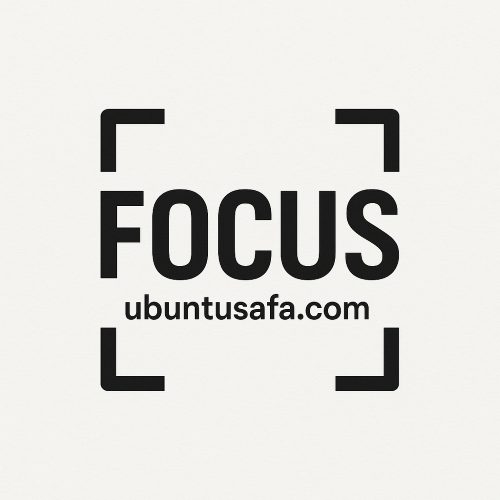New Scramble for Africa

Nigeria: Africa’s Energy Giant and U.S.-China Battleground
Why It Matters:
Nigeria is Africa’s most populous country (220+ million people), the largest economy, and a major oil and gas producer. Its vast energy reserves and growing digital economy make it a focal point for U.S., Chinese, and European competition.
Global Engagements:
-
United States: Washington maintains strong security ties, especially in counterterrorism against Boko Haram and ISIS-West Africa. American oil firms (ExxonMobil, Chevron) remain active. Nigeria also benefits from U.S. aid programs.
-
China: China has financed major infrastructure, from the Abuja-Kaduna railway to airport expansions. Huawei dominates Nigeria’s telecom infrastructure.
-
Europe: The EU eyes Nigeria’s natural gas as an alternative to Russia. Germany and Italy signed agreements for long-term LNG imports.
-
Russia: Russia has explored arms sales and nuclear energy deals with Abuja, but its footprint remains smaller compared to China and the West.
Nigeria’s Strategy:
Nigeria uses its energy leverage to attract foreign investment but struggles with governance issues, corruption, and oil theft. Its young, tech-savvy population positions it as a hub for fintech and digital services. Abuja’s challenge is to ensure external engagement translates into broad-based development rather than elite capture.
South Africa: BRICS Power and Balancing Act
Why It Matters:
South Africa is Africa’s most industrialized economy and a founding member of BRICS. Its role as a diplomatic heavyweight makes it a bridge between Africa and the Global South.
Global Engagements:
-
United States & Europe: The U.S. and EU remain key trade partners, with the African Growth and Opportunity Act (AGOA) giving South African exports access to U.S. markets. Europe is heavily invested in mining and automotive industries.
-
China: China is South Africa’s largest trading partner, buying iron ore, coal, and manganese. Chinese companies are active in energy and infrastructure.
-
Russia: Pretoria maintains close ties with Moscow, reflecting both historic ANC-Soviet solidarity and current BRICS alignment. South Africa hosted joint naval drills with Russia and China in 2023.
South Africa’s Strategy:
Pretoria positions itself as a diplomatic pivot, resisting pressure to align fully with the West or China. Its BRICS role strengthens its voice in global south politics, but domestic challenges—energy shortages, unemployment, corruption—limit its ability to fully leverage external partnerships.
Ethiopia: Geopolitical Crossroads of the Horn of Africa
Why It Matters:
With over 120 million people, Ethiopia is Africa’s second-most populous country and a historical symbol of independence (never colonized). Its location near the Red Sea and the Suez Canal gives it immense geostrategic value.
Global Engagements:
-
China: Ethiopia is one of China’s biggest African partners, with BRI projects such as the Addis Ababa–Djibouti railway and industrial parks that make it a manufacturing hub.
-
United States: Washington has a long history of aid and development ties but relations have soured over Ethiopia’s Tigray war and human rights concerns.
-
Europe: The EU provides development assistance but struggles with influence compared to China.
-
Middle East: Gulf states (UAE, Saudi Arabia, Qatar) are major investors in agriculture and ports, seeking food security and maritime access.
Ethiopia’s Strategy:
Ethiopia attempts to balance Chinese infrastructure support with Western aid, while leveraging Gulf investment. But internal conflicts threaten its ability to maximize this position. If stability is restored, Ethiopia could emerge as a gateway hub for the Horn of Africa.
Democratic Republic of Congo (DRC): Resource Treasure Chest
Why It Matters:
The DRC holds some of the world’s most critical minerals for the 21st-century economy: 70% of global cobalt reserves, huge copper deposits, and untapped lithium. Whoever shapes Congo’s mining sector will influence global supply chains for electric vehicles and green technologies.
Global Engagements:
-
China: Chinese firms dominate DRC’s mining sector, controlling cobalt and copper extraction through joint ventures.
-
United States: Washington has recently re-entered the competition, striking deals to secure cobalt and lithium for U.S. battery industries. The Biden administration seeks to counterbalance China’s monopoly.
-
Europe: The EU is negotiating partnerships for “responsible mining” to secure supply chains for its Green Deal.
-
Russia: Moscow has limited presence compared to China and the U.S., though it explores mining contracts and security ties.
DRC’s Strategy:
The DRC has historically been exploited for resources with little local benefit. President Félix Tshisekedi has sought to renegotiate mining contracts with China to capture more value. If successful, Congo could become not just a supplier but a strategic player in global energy transitions. However, political instability and corruption remain significant risks.
Conclusion: Africa’s Choices in a Multipolar World
These national spotlights reveal a common pattern: global powers compete vigorously for African resources and influence, but African states are no longer passive. Nigeria leverages its energy; South Africa uses its diplomatic role; Ethiopia maximizes its geostrategic location; and the DRC seeks to capitalize on minerals crucial to the green transition.
The challenge across the continent is whether leaders can translate external competition into internal transformation—building industries, jobs, and infrastructure that benefit their citizens rather than perpetuating dependency.
The new scramble for Africa is not only about who wins influence, but whether Africa itself can redefine the rules of engagement.
- Questions and Answers
- Opinion
- Motivational and Inspiring Story
- Technology
- Live and Let live
- Focus
- Geopolitics
- Military-Arms/Equipment
- Sicurezza
- Economy
- Beasts of Nations
- Machine Tools-The “Mother Industry”
- Art
- Causes
- Crafts
- Dance
- Drinks
- Film/Movie
- Fitness
- Food
- Giochi
- Gardening
- Health
- Home
- Literature
- Music
- Networking
- Altre informazioni
- Party
- Religion
- Shopping
- Sports
- Theater
- Health and Wellness
- News
- Culture

